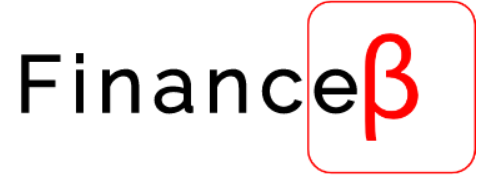What Are Derivative Contracts?
Derivatives are financial instruments whose value is derived from the value of another asset, such as a stock, bond, or commodity.
They are often used to hedge against risk or to speculate on the future price of an asset.
Derivatives can be traded over-the-counter (OTC), which means that they are negotiated directly between two parties, or they can be traded on an exchange.
Here are some additional details about derivatives:
- Derivatives can be used to hedge against risk. For example, a farmer might use a derivative to hedge against the risk of a decline in the price of corn. The farmer would agree to sell a certain amount of corn at a predetermined price in the future, regardless of what the market price of corn is at the time of delivery. This would protect the farmer from a loss if the price of corn falls.
- Derivatives can also be used to speculate on the future price of an asset. For example, an investor might buy a derivative that bets on the price of oil going up. If the price of oil does go up, the investor will make a profit. However, if the price of oil goes down, the investor will lose money.
Uses of Derivative Contracts
Derivative contracts are used for a variety of purposes, including:
- Speculation: This is when an investor buys or sells a derivative contract in the hope of making a profit from changes in the price of the underlying asset. For example, an investor might buy a call option on a stock if they believe that the stock price is going to go up.
- Hedging: This is when an investor uses a derivative contract to protect themselves against losses on another investment. For example, a farmer might hedge against a decline in the price of corn by buying a put option on corn.
- Access to exotic financial instruments: Derivative contracts can be used to gain exposure to exotic financial instruments that would otherwise be difficult or expensive to trade directly. For example, an investor might buy a contract that gives them the right to buy or sell a basket of stocks.
General Components of Derivative Contracts
The general components of derivative contracts are:
- Underlying asset: The asset that the derivative contract is based on.
- Strike price: The price at which the underlying asset can be bought or sold at the end of the contract.
- Expiration date: The date on which the contract expires.
- Premium: The price paid for the contract.
- Settlement: The process of delivering the underlying asset or paying the difference in price between the strike price and the market price of the underlying asset.
Derivative contracts can be used to hedge against risk, speculate on the future price of an asset, or generate income.
Where Does a Financial Derivative Contract Derive Its Price?
Derivative contract values are calculated based on underlying assets such as stocks, bonds, currencies, commodities, market indices, interest rates.
The value of the derivative contract, therefore, will change as the value of the underlying asset changes.
For example, if the price of a stock goes up, the value of a call option on that stock will also go up.
Examples of Derivative Contracts
Here are some more details about each type of derivative contract:
- Futures contracts are agreements to buy or sell an asset at a specified price on or before a specified date in the future. The buyer of a futures contract is obligated to buy the asset at the specified price, while the seller is obligated to sell the asset at the specified price. Futures contracts are often used to hedge against risk, such as the risk of changes in the price of a commodity.
- Options contracts are agreements that give the buyer the right, but not the obligation, to buy or sell an asset at a specified price on or before a specified date in the future. The buyer of an options contract pays a premium to the seller, and the seller is obligated to sell the asset to the buyer if the buyer exercises the option. Options contracts are often used to speculate on the future price of an asset.
- Swaps contracts are agreements to exchange one financial instrument for another, or to exchange cash flows based on a set of predetermined criteria. Swaps contracts are often used to hedge against risk, such as the risk of changes in interest rates.
How a Derivative Contract Manages Risk
Derivative contracts are financial instruments that can be used to:
- Manage risk (hedging)
- Make a profit by predicting the future price of an asset (speculation)
Here are some additional details about hedging and speculation:
- Hedging is a strategy that is used to reduce risk by offsetting one investment with another. For example, a farmer might use a futures contract to hedge against the risk of falling crop prices. The farmer would agree to sell a certain amount of their crop at a set price in the future, regardless of what the market price of the crop is at the time of delivery. This would protect the farmer from losses if the market price of the crop falls.
- Speculation is a strategy that is used to make a profit by predicting the future price of an asset. For example, an investor might buy a call option on a stock if they believe that the stock price is going to go up. The call option gives the investor the right to buy the stock at a set price, even if the market price of the stock goes above that price. This can be a profitable strategy if the investor is correct in their prediction about the future price of the stock.
Risks of Using Financial Derivatives
Financial derivatives generally have a number of risks associated with using them, these may include:
- Leverage: Financial derivatives can be used to magnify profits, but they can also magnify losses. This is because the value of a derivative can change much more than the value of the underlying asset.
- Complexity: Financial derivatives can be complex and difficult to understand. This can make it difficult to assess the risks involved in using them.
- Counterparty risk: When you enter into a financial derivative contract, you are essentially betting against the other party to the contract. If that party defaults on the contract, you could lose money.
- Market risk: This is the risk that the value of the underlying asset will change, which could affect the value of the derivative.
- Liquidity risk: Financial derivatives can be illiquid, meaning that it can be difficult to sell them quickly if you need to. This can make it difficult to exit a position if the market moves against you.
- Regulatory risk: Financial derivatives are subject to a variety of regulations. These regulations can change, which can affect the value of derivatives.
It is important to understand the risks associated with financial derivatives before using them. If one is not comfortable with the risks, they should not use them.

